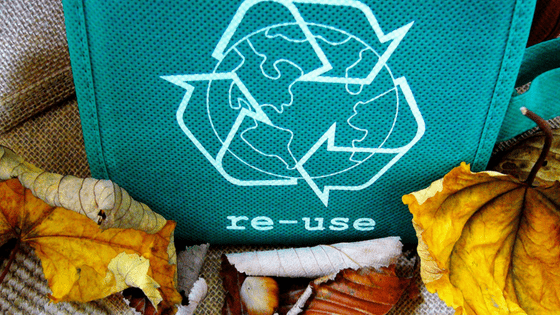You may have heard of the term ethical shopping, especially in recent years when consumers are becoming more aware of the practices of commercial companies and the way that that produce their goods. Consumers are interested in the effect on the environment and whether the company’s workers were exploited in the manufacture of the products.
The facts are that we live in a society where so much is disposable and many companies are focused only on ways to increase their revenue with no concern over what the effect is on our planet, our animals and our people.
Fortunately many consumers are now more aware of this and want to shop in a more ethically way. Shopping ethically is often more expensive but the payoff is that the environmental footprint of your purchases is drastically reduced. The way the human race is going now with such a throwaway society our planet is in dire straights. We need to focus on living in a more sustainable way and be more conscious about all of our actions, including our purchases.
Following these ethical shopping guidelines will help you to make better choices for yourself and the rest of the world:

Join A Conscious Community
It’s not easy doing anything alone and being part of a community that shares the same goal of sustainable living will be very helpful. Members can share information and eco-friendly products to assist you with sustainable shopping.
Atlist is one such community and you can sign up here.
Buy Local & Handmade
Supporting local businesses, especially when products are handmade, will reduce your carbon footprint in a big way. Buying products made from large chain stores means that products have been mass produced and most likely transported long distances, sometimes all over the country but very often all over the world.
If you buy handmade products or products manufactured by a local business chances are good that you can easily chat to them and find out where they sourced their supplies from. When you are buying products from a large chain store it is not so easy to know what went into the production of those products.
So consider buying your fresh fruit and vegetables from a local farmer or farmers market instead of your closest grocery store. Every purchase you make from a local business not only helps to sustain your local community, but also helps to save the planet.

Research Retailers
Spend some time researching retailers before you choose where to buy from. As mentioned above being part of a conscious living community will be very helpful here since they will have great resources available for you and often offer lists of companies that you can ethically purchase from.
Find out if there are any labour disputes – if a company has a history of regular labour disputes chances are high that they exploit their employees.
There are many well known and popular brand names that use sweatshop labour. It is also important to note that if you buy any fake brands names chances are better than not that those goods were made in a sweatshop.
Look for companies that have fair trade certification – you don’t want to buy anything that has been produced from child or slave labour.
Support companies whose ethics are in line with your own.
Research Animal Testing
Animal testing is done for many products and there is no doubt about it that this is not an ethical practice. Find out what products are endorsed by Beauty Without Cruelty and Leaping Bunny. Only companies and products endorsed by those two entities can be considered as not tested on animals as every ingredient that goes into the end product must be audited and approved.
There are many companies and products that claim to be animal friendly yet when you dig deeper you will find that ingredients that went into that product is tested on animals, or perhaps the holding company for that brand tests on animals and your money is going into their pockets.

Be Plastic Conscious
Plastic is everywhere and there is no escaping the damage already caused. There are still many shops that are handing out plastic bags to shoppers, and so many products are wrapped in plastic that don’t need to be.
Take your own tote bags with when you go shopping to carry your goods back home. Be conscious when shopping and try to only buy products where there is either no plastic or alternatively buy products with plastic that you can re-use.
Avoid all one use plastic when shopping.
Support stores that don’t use plastic and find alternative, more ethical ways to package their products.
Conscious Purchasing
Do you really need that new pair of designer jeans? Chances are that you don’t. We have become so stuck in a consumerism lifestyle of material things that we don’t need a fraction of the things we purchase.
By starting to be more aware of the things we purchase and asking ourselves if we really need those things we will start to cut out purchases down drastically. This will save money and the planet if we only buy absolute necessities.

Re-use, Repair, Recycle, Upcycle
We have become such a throwaway generation, with so many things being needlessly disposed of. If something breaks try to repair it first. If you get a hole in your pants patch it up instead of throwing it away.
Instead of buying things new start shopping at second hand stores. Go to garage sales and see if you can pick up things you need there.
Try and find a way to use things that you would normally throw away or recycle. Glass jars and plastic containers can be used as storage containers. Find out if there is someone in your area that is collected glass jars or any other “junk” you may have lying around.
Search online for ways to upcycle things – you will be amazed at some of the beautiful and creative things you can do with your “rubbish”!
If you have anything you don’t need anymore donate it to someone in need or sell it. Make sure to recycle anything that you can’t reuse or upcycle. Try not to throw anything away unless you absolutely have to.
 Kaboutjie SA Mommy Blogs by Lynne Huysamen
Kaboutjie SA Mommy Blogs by Lynne Huysamen





This is a fantastic topic. Thank you for great advise @Lynne.
Quite a few people I know have the biggest battle when it comes to online shopping.
When purchasing online I generally follow these:
1. Avoid Impulse Buying: Online websites keep sending us coupon codes, and notification which makes us just buy stuff. Control yourself. Just like any shopaholic we end up buying which is not needed.
2. Don’t be lazy, go retail shopping: Today all these websites are running big sale season, but I have come across so many products which are easily available for cheap in your local shops, even after all the discounts offered by online websites, so it is always better to compare before buying.
3. Read Return Policy: After frequent misuse of returns, all the E-Comm sites have changed their return policy specially for Electronics and Furniture. Read that before buying, else you might not be able to return your product if don’t like.
Thank you for sharing this awesome post